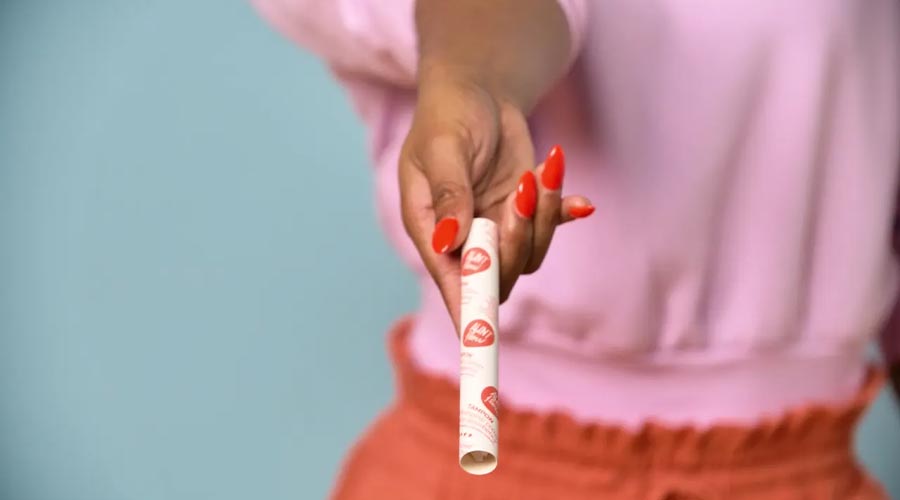
As conversations about reducing personal and organizational impact on the planet are top of mind in April, it’s valuable to turn focus on the messier side of menstruation—period waste.
Each year, more than two billion disposable tampons and pads are discarded in the U.S., many of which are improperly flushed according to the National Association of Clean Water Agencies. These products, often containing plastic components, contribute to mounting environmental issues including landfill overflow, water pollution, and soil contamination.
As organizations ramp up sustainability efforts, facilities managers have an opportunity to reduce their buildings' and organizations' ecological impact by rethinking how period products are provided and disposed of in public restrooms.
Sustainable Products Gain Ground
Although there is currently no federal mandate requiring sustainable menstrual products in public facilities, momentum is building. Claire Coder, Founder and Chief Estrogen Officer at Aunt Flow, notes that “over 28 states have passed laws requiring free period products to be provided in schools, colleges, and other public institutions.”
This wave of legislation reflects a broader societal acknowledgment that access to menstrual care is not a luxury — it’s a basic necessity. And as more organizations begin to stock their restrooms with free period products, the conversation naturally evolves from whether they should offer these items to how they can do so responsibly. This is where sustainability comes into play.
“Eco-friendly alternatives — such as organic cotton tampons and pads with plastic-free wrappers or applicators — can significantly reduce environmental harm when offered as part of an organization's standard hygiene supplies,” Coder shares. “In 2024 alone, Aunt Flow supplied over 34 million eco-friendly PFA-free period products to organizations around the globe, and we think numbers like that move the needle.”
Addressing Disposal Challenges
Proper disposal is another key piece of the puzzle. Flushing tampons and pads can lead to blocked sewage systems and increased microplastics in oceans. Yet many restroom users still see flushing as the more sanitary option.
“In a study we conducted, 30 percent of women reported that they’d rather flush their pads and tampons than come into contact with an unsanitary, often overflowing wall-mounted metal waste box,” says Krista Plewes, Head of Marketing at Citron Hygiene.
Improving the condition and visibility of disposal units in restrooms is a simple yet powerful way facilities can discourage flushing and encourage responsible disposal. Aunt Flow and Citron Hygiene are examples of supplier and service companies that are revolutionizing the way facility managers provide access to and disposal of period products in public restrooms.
Curbside Composting: How does period waste fit?
Organizations looking into composting initiatives may wonder how period products fit in. Susan Thoman, Managing Director for the Compost Manufacturing Alliance, explains that in general, menstrual products in the U.S. aren't accepted for curbside composting at commercial and municipal facilities. Although some may wonder about composting the wrappers, this isn’t practiced because it can easily lead to cross-contamination issues. For paper wrappers that are truly free of chemicals and polymers, experts recommend recycling or home composting those.
As sustainability remains a focus this month, facilities managers are encouraged to evaluate how they manage menstrual hygiene within their organization. By offering eco-friendly products, maintaining clean disposal options, and educating restroom users on proper practices, organizations can make a meaningful impact on restroom guests, their janitorial staff, and ultimately the planet.
Aunt Flow will host a Q&A webinar on the April 24 that will address period product waste management and best practices for facility managers. Additional information is available here.

 The Down and Dirty on Cleaning in Virus Season
The Down and Dirty on Cleaning in Virus Season How Surfactant Use is Expanding in Commercial Cleaning
How Surfactant Use is Expanding in Commercial Cleaning Maximize Your Margins: Learn How to Automate Pricing and Track Rebates
Maximize Your Margins: Learn How to Automate Pricing and Track Rebates